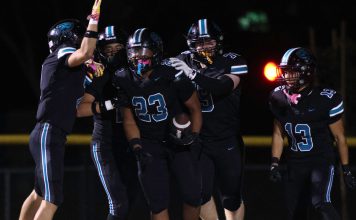GILROY
– Dion Bracco had little intention of running in the November
2003 election, but that changed in December 2002 when he caught a
City Council meeting on television.
GILROY – Dion Bracco had little intention of running in the November 2003 election, but that changed in December 2002 when he caught a City Council meeting on television.
City Council had approved the purchase of a $262,000 ambulance for its third fire station, which currently has no firefighting crew thanks to budget woes.
“When I heard that, I made up my mind to run for Council,” Bracco said. “In my business when I buy a piece of equipment … I start with what I really want to have and usually end up with what I need and what I can afford.”
Bracco, a first-time candidate with little political involvement, says his experience over the past 12 years as owner of a towing company makes him the right choice for voters who think city decisions like this one need to be better watchdogged.
“On a day-to-day basis, I deal with employees, contracts, a budget, equipment purchases and government regulations, so I believe that makes me qualified,” Bracco said.
Bracco is a lifelong Gilroyan who wants to see his native town grow slowly by sticking to the current master plan that allows for roughly 3,500 homes to be built over the next decade. Bracco calls that rate “manageable.”
“I want Gilroy to be a nice place to live for my grandchildren one day,” Bracco said. “I lived here all my life. I’ll probably die here. And I have a vision that I’d like to see it stay at.”
Bracco says he doesn’t have an answer to fixing up a downtown he called “an embarrassment.” But he has the resolve to make things better and the desire to work with anyone who has that same goal.
Bracco said he would support using the conditional-use permit process to give Council more control over what types of businesses would be allowed downtown. The medical center, planned to replace the Garlic Festival Store at Fifth and Monterey streets, would be one such business that would have need to go through the conditional use permit process.
He also supports earmarking a percentage of sales tax for downtown revitalization.
Although Bracco had issues with the $26 million police station design that initially came to City Council, he is not phased by 80 percent of every tax dollar being spent on public safety.
“It’s a big percent, but it’s something that we have to provide, and we want to provide the best,” Bracco said. “So far, it seems to have worked for us now until budget times are tough.”
When it comes to economic incentives, Bracco said they are the tool to a better quality of life.
“We haven’t had a bad one yet. Every one of them has paid off,” Bracco said. “We need to keep incentives on the table so that we’re able to go out and attract a specific company that we want here, especially if you get an employer that’s going to bring in high paying jobs and good benefits. If you say no more incentives, you’re kind of shooting yourself in the foot.”
Bracco is favorable to the idea of Wal-Mart at Arroyo Circle morphing into a Wal-Mart Supercenter in the Pacheco Pass shopping center. Bracco is confident a store will fill the existing Wal-Mart site, bringing additional tax dollars to Gilroy.
Bracco also is optimistic about the fate of east side supermarkets forced to compete with the grocery-store component of the Supercenter. Several other Council hopefuls believe Wal-Mart Supercenter will crush existing business and at no benefit to the city since groceries are largely un-taxable.
“I don’t buy that argument. (Arteaga’s) market(s) their store to a specific part of our community, and that’s not going to change. Their customers aren’t going to go to Wal-Mart (over Arteaga’s),” Bracco said. “PW it could affect, but that’s business today. I have to adjust my business all the time when new competitors come into town.”
As far as parks and open space are concerned, Bracco would send any attempt to join the Open Space Authority to the voters. The Open Space Authority charges cities to preserve and maintain open space within Santa Clara County. Some of the money paid into the authority comes back to cities to use for projects like park construction.
“Let the people that are going to pay the bill decide if they want to be in it or not,” Bracco said.
Bracco is another candidate who wants to see neighborhood parks constructed before residents move in. Currently, the city builds parks after a majority of houses are built so residents can have input into the park’s design and developers fees can be used to fund construction.
Bracco said a shift in policy would make park construction cheaper and would prevent the situation that occurred at Sunrise Park where residents had lived in their homes for 10 years before designs for the park were completed.
“By waiting until the homeowners buy their houses so they can help design the park just slows everything down and that park has probably doubled or tripled in price,” Bracco said.
“We have people that are pretty smart. They went to college to learn how to design stuff and they’re pretty competent. They should be allowed to do their job and go in there and design a park so it can be built.”













